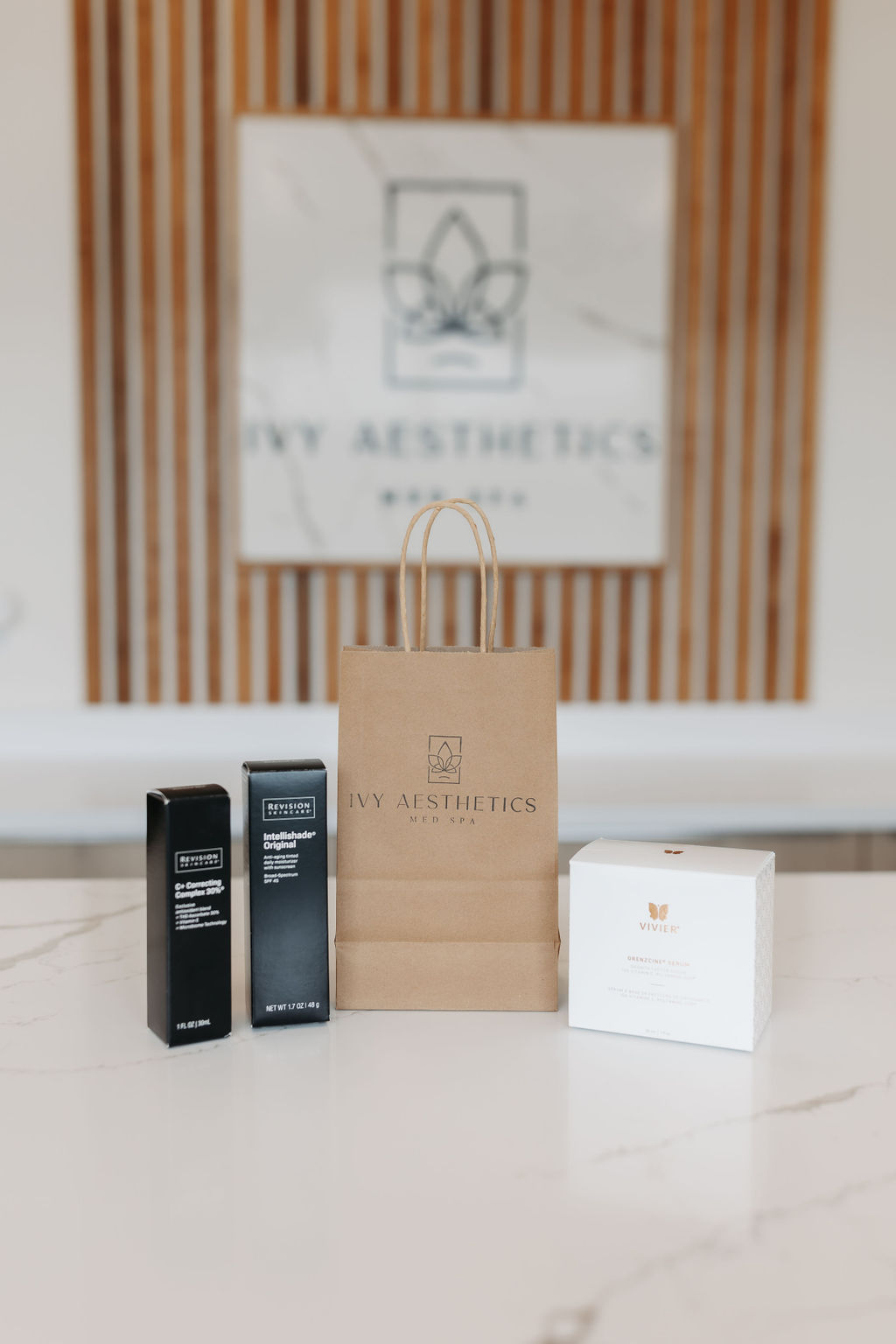
Many clients wonder, “Is that $120 serum really better than the $30 one at Sephora?” Spoiler alert: yes, it is! When it comes to skincare, not all products are created equal, and understanding why can save your skin, and your wallet, a lot of frustration.

Medical-grade skincare products differ from over-the-counter (OTC) options in several important ways:
Medical-grade skincare tends to be more effective due to clinically proven, faster-acting ingredients, while OTC products often provide milder, more variable results.
The purity of ingredients is generally higher in medical-grade options, which contain fewer fillers and irritants compared to many drugstore products.
Additionally, medical-grade products use advanced delivery systems that allow active ingredients to penetrate deeper into the skin, whereas over-the-counter formulations typically work only on the surface.
Choosing the right skincare isn’t about picking what’s trending or cheapest. A professional consultation can identify your skin type, conditions, and goals, ensuring you get products that work, saving you money and time by avoiding guesswork and ineffective treatments.